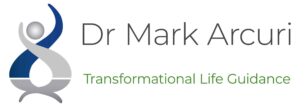 We live in a world full of contrast — social concerns abound and they give ample fuel to a fire that has been smoldering for a very long time. While here in the United States the crisis feels particularly amplified at the current time, with the smoldering embers on the verge of exploding into a full-on blaze, similar urgency to respond is being felt for many reasons worldwide. As a result there is great unhappiness and feelings of disempowerment, futility, and fear.
We live in a world full of contrast — social concerns abound and they give ample fuel to a fire that has been smoldering for a very long time. While here in the United States the crisis feels particularly amplified at the current time, with the smoldering embers on the verge of exploding into a full-on blaze, similar urgency to respond is being felt for many reasons worldwide. As a result there is great unhappiness and feelings of disempowerment, futility, and fear.
I listened to a talk by Gregg Braden recently. If you haven’t yet taken the opportunity I encourage you to consider taking in some of his YouTube materials. In this particular talk he mentioned Judgement versus Discernment as two ways of approaching current world affairs. While they might both be valid responses to a situation, judgement and discernment have very different consequences. When one judges, for instance, a wide variety of emotional connections are formed, resulting both from what is directed toward that which is being judged and what is created by the intentions held by the person doing the judging. These emotional connections, or forces, have implications that can be quite destructive on personal and global levels because the emotions tend to be what we would call negative emotions. And negative emotions have little enduring effect other than to chip away at our own psyche as well as damaging the psyches of those around us. In time the damage becomes hardwired in our brains, and the negative emotions and all they entail become the new norm.
Discernment, on the other hand, is a much gentler, kinder process, and one that can lead to wiring the brain in a different more positive way. When one discerns what is happening in a situation there is some sense of working toward an understanding of what is happening as an observer without applying labels, and without resultant emotional connections to such notions as good or bad. Discernment is a process of noticing, and out of curiosity going deeper into the experience. Discernment is an analysis, if you will, for no other purpose than gaining insight from which actions can be chosen. From this place of kindness and consideration and insight positive change is possible. As opposed to with judgement, when one discerns the brain becomes immersed in chemicals borne of compassion and empowerment rather than of negativity and fear.
While I do not recommend reading or watching the news as a regular practice it is important to have some connection to what is going on the world. I encourage you to consider the lens you have on when you do so. Are you looking through judging eyes or are you simply discerning what is going on? To help make this more conscious you might take a piece of paper and in the left hand column list a few items that you feel are important in your world. To the right of each write two statements — From a judging place I might think and feel…; and, From a place of discernment I might think and feel… .
What differences do you see in what you have written? What attitudes come across in each statement? What feelings do they elicit? What actions might you feel called to take as a result? Which statements best align with who you really are?
Take notice and then decide which is best for you! I suspect I know the answer.
With Blessings and Gratitude,
From Santa Fé, New México
Dr. Mark

